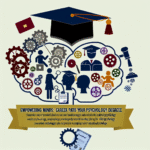Find Your Balance: Essential Practical Ways to Reduce Work-Related Stress
Introduction
In an age where the lines between work and life blur ever more, the phrase "work-related stress" often feels like an understatement. As we hustle through emails and meetings, many of us may find ourselves overwhelmed, fatigued, or burned out. The need for a respite is crucial––it’s time to discover how to find your balance. In this in-depth exploration, we’ll discuss practical ways to reduce work-related stress that you can implement today, enhancing both your professional and personal life.
Understanding Work-Related Stress
Work-related stress is not just about feeling busy or overwhelmed; it’s a more profound state that can lead to debilitating mental and physical health issues. According to the World Health Organization, stress is a response to a perceived threat, and in today’s fast-paced workplace, many of us face continuous stresses.
Common Causes of Work-Related Stress
- Heavy Workload: Often, employees are tasked with more than they can handle, leading to overwhelm.
- Lack of Control: Feeling like you have no influence over your tasks or decisions can heighten stress.
- Unclear Job Expectations: Not understanding what’s expected of you can be a major source of anxiety.
- Poor Work-Life Balance: When work seeps into personal time, it becomes hard to unwind.
The Significance of Reducing Work-Related Stress
Managing stress is not just about comfort; it has tangible benefits. According to a study by the American Psychological Association, effective stress management can lead to increased productivity, lower absenteeism, and greater employee satisfaction. Understanding how to find your balance means embracing tools and strategies that not only alleviate stress but also promote a healthier workplace culture.
Practical Strategies for Reducing Work-Related Stress
1. Set Clear Boundaries
Define Your Work Hours: Establishing clear work hours is essential for maintaining your mental health. Communicate these boundaries with your team to ensure everyone is on the same page.
Case Study: Consider the case of Sarah, a project manager at a tech company. By shutting off work notifications after 6 PM, she found herself more focused, engaged in her personal life, and less stressed at work. Sarah realized that saying "no" was an act of self-care, allowing her to recharge for the next day.
2. Prioritize Tasks with the Eisenhower Matrix
The Eisenhower Matrix assists in distinguishing between what is urgent and important, guiding your focus to what truly matters.
| Urgent | Not Urgent | |
|---|---|---|
| Important | Attend a client call | Schedule strategic planning |
| Not Important | Respond to emails | Organize workspace |
By using this framework, you will find it easier to prioritize and reduce the feeling of being overwhelmed.
3. Embrace Mindfulness and Meditation
Taking even a few minutes for mindfulness can drastically reduce stress levels. Consider dedicating just 5-10 minutes a day to practice meditation, breathing exercises, or mindfulness.
Analysis: A company that integrated mindfulness meditation into its culture reported a 32% decrease in employee stress levels. Meditation helps anchor your thoughts, reducing anxiety about future tasks or past failures.
4. Develop a Supportive Work Environment
Open Communication: Encourage open dialogue among team members about workloads and stress. Regular check-ins can also help stakeholders feel supported.
Case Study: A marketing firm adopted weekly check-ins, allowing team members to share their accomplishments and stressors. This practice fostered camaraderie and significantly reduced stress levels, as employees felt more connected and supported.
5. Engage in Regular Physical Activity
Exercise is a proven stress reliever. Aim for at least 30 minutes of moderate activity most days of the week.
| Activity Type | Recommended Duration | Benefits |
|---|---|---|
| Walking | 30 min | Reduces anxiety |
| Yoga | 15-30 min | Enhances flexibility and mindfulness |
| Team Sports | 1 hr | Builds teamwork and camaraderie |
Physical activity increases endorphins, which can improve your mood and lower stress.
6. Use Time Management Tools
Apps such as Trello, Asana, or simple to-do lists can enhance your time management, making tasks less daunting.
Analysis: A study showed that teams using digital project management tools reduced stress by 20%, as clarity in task assignment mitigated feelings of chaos.
7. Foster Work-Life Balance
Take Regular Breaks: Breaks throughout the workday can improve productivity and focus.
Case Study: A global consulting firm implemented mandatory 15-minute breaks every two hours, allowing employees to stretch, hydrate, and decompress. The result? A reported 25% increase in productivity and a significant reduction in mental fatigue among staff.
8. Seek Professional Help
Sometimes stress can be overwhelming. Consulting a psychologist or counselor can provide professional strategies to cope with stress.
Data Point: Organizations with Employee Assistance Programs (EAPs) report a 30% decline in stress and turnover rates. Professional help can provide the tools you need to tackle stress effectively.
Conclusion
Finding your balance in today’s frantic work environment might seem daunting, but it is entirely achievable. By implementing practical ways to reduce work-related stress, not only can you enhance your productivity and satisfaction, but you can also cultivate a healthier lifestyle overall. Small changes can lead to significant results, making each workday more manageable and fulfilling.
FAQs
1. What are immediate steps I can take to reduce stress at work?
Start by establishing boundaries, practicing mindfulness, and taking regular breaks. These simple steps can make a significant difference instantly.
2. How can I communicate my need for better work-life balance to my manager?
Be honest and assertive about your needs. Frame your request in terms of increased productivity and satisfaction.
3. What role does company culture play in work-related stress?
A supportive company culture can dramatically reduce stress levels, as employees feel valued and understood.
4. How can I motivate my team to prioritize their stress management?
Lead by example. Share your strategies for managing stress and encourage open communication about workload challenges.
5. Can technology help in reducing work-related stress?
Yes! Tools that enhance organization and workflow can alleviate feelings of chaos, enabling employees to focus on what matters most.
Incorporating these practices into your daily routine can help you find your balance. Life is not just about surviving the chaos but thriving within it. Embrace these practical ways to reduce work-related stress, and watch as your mindset and productivity flourish.

















